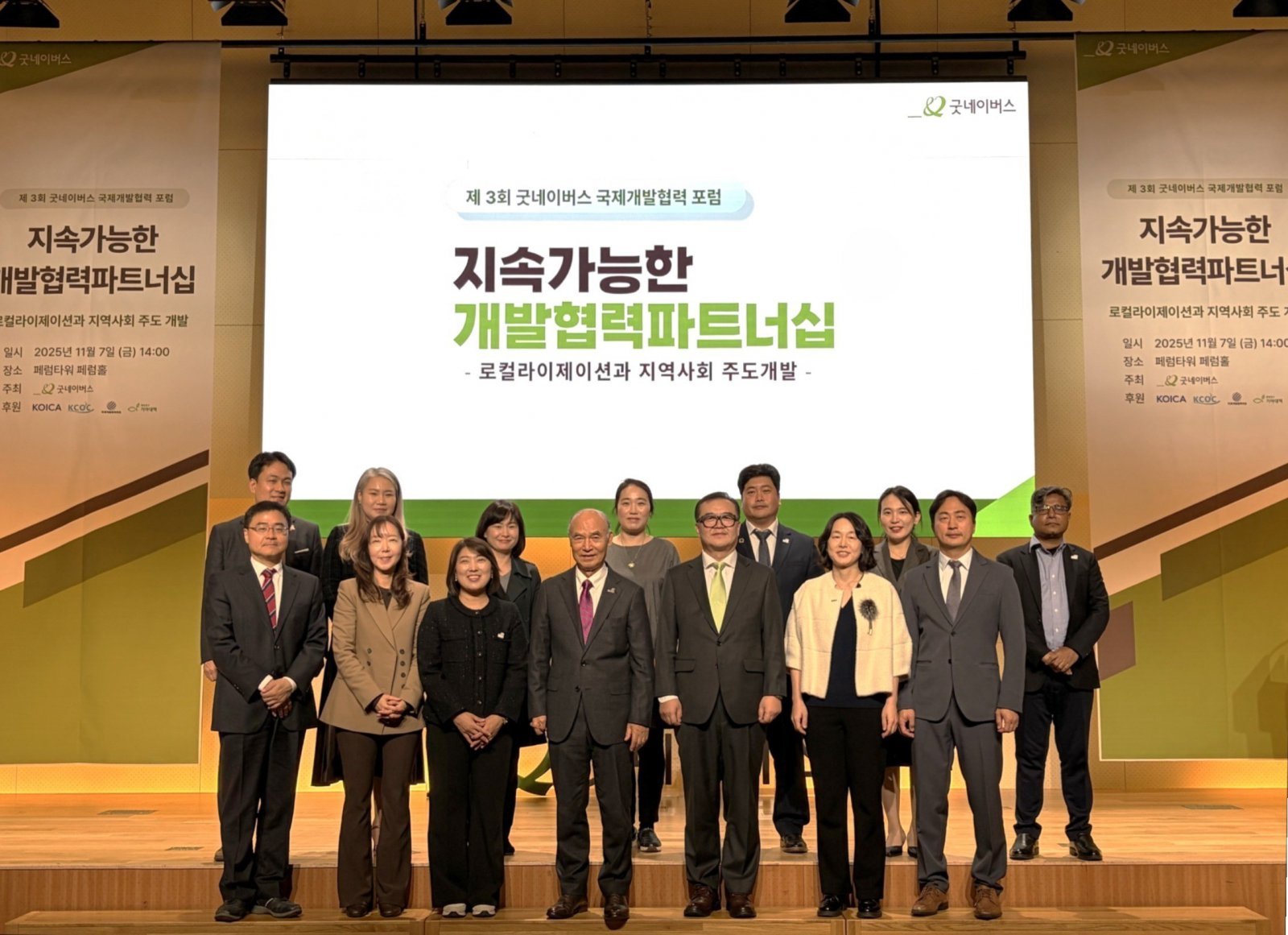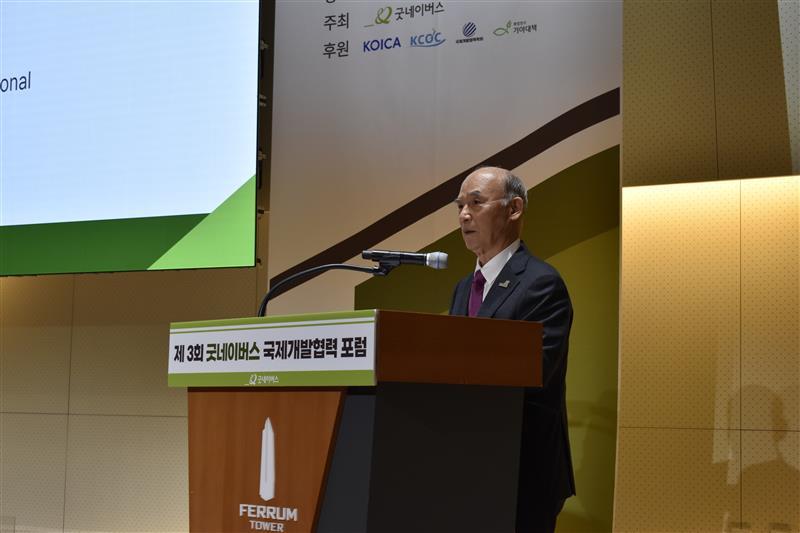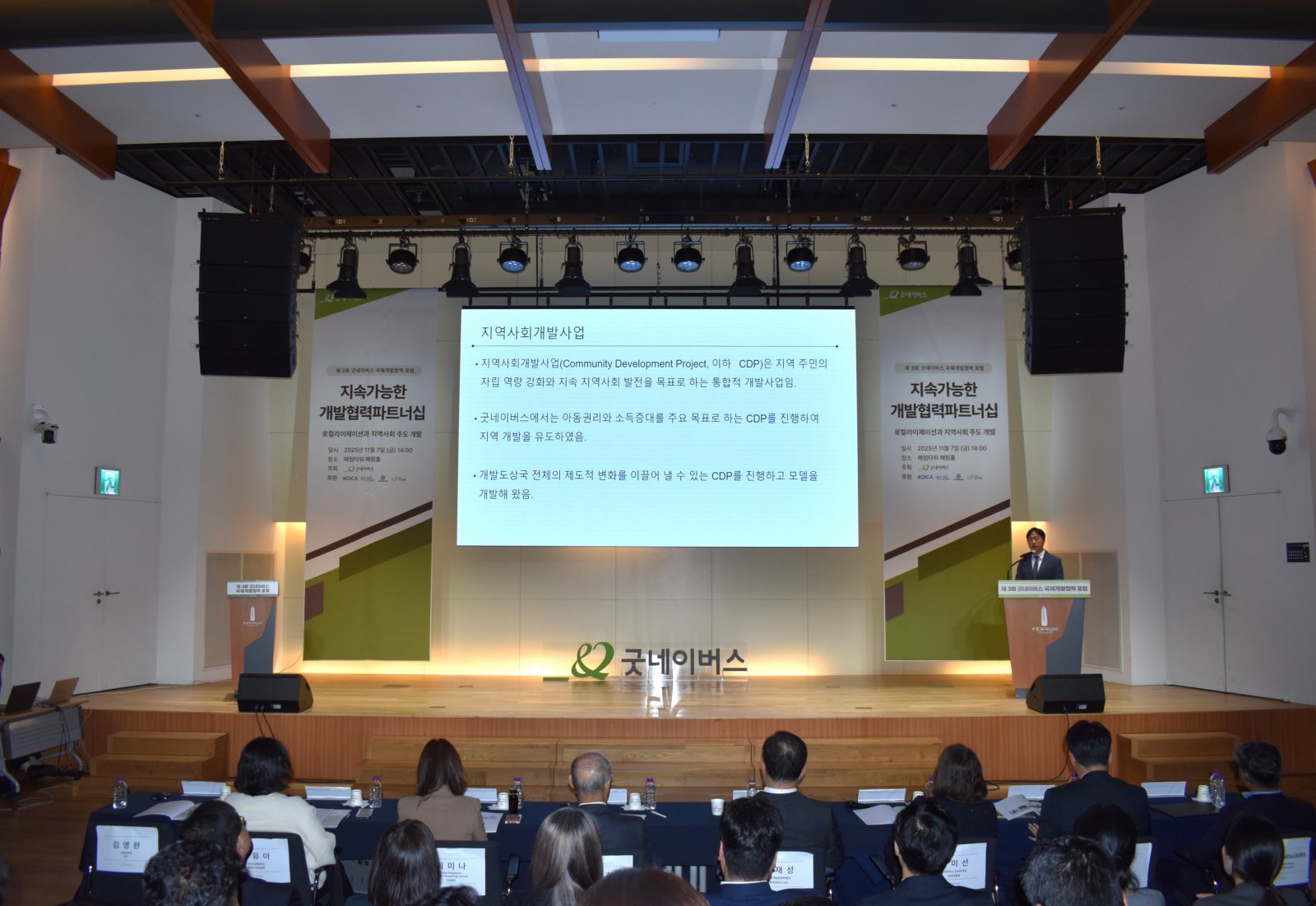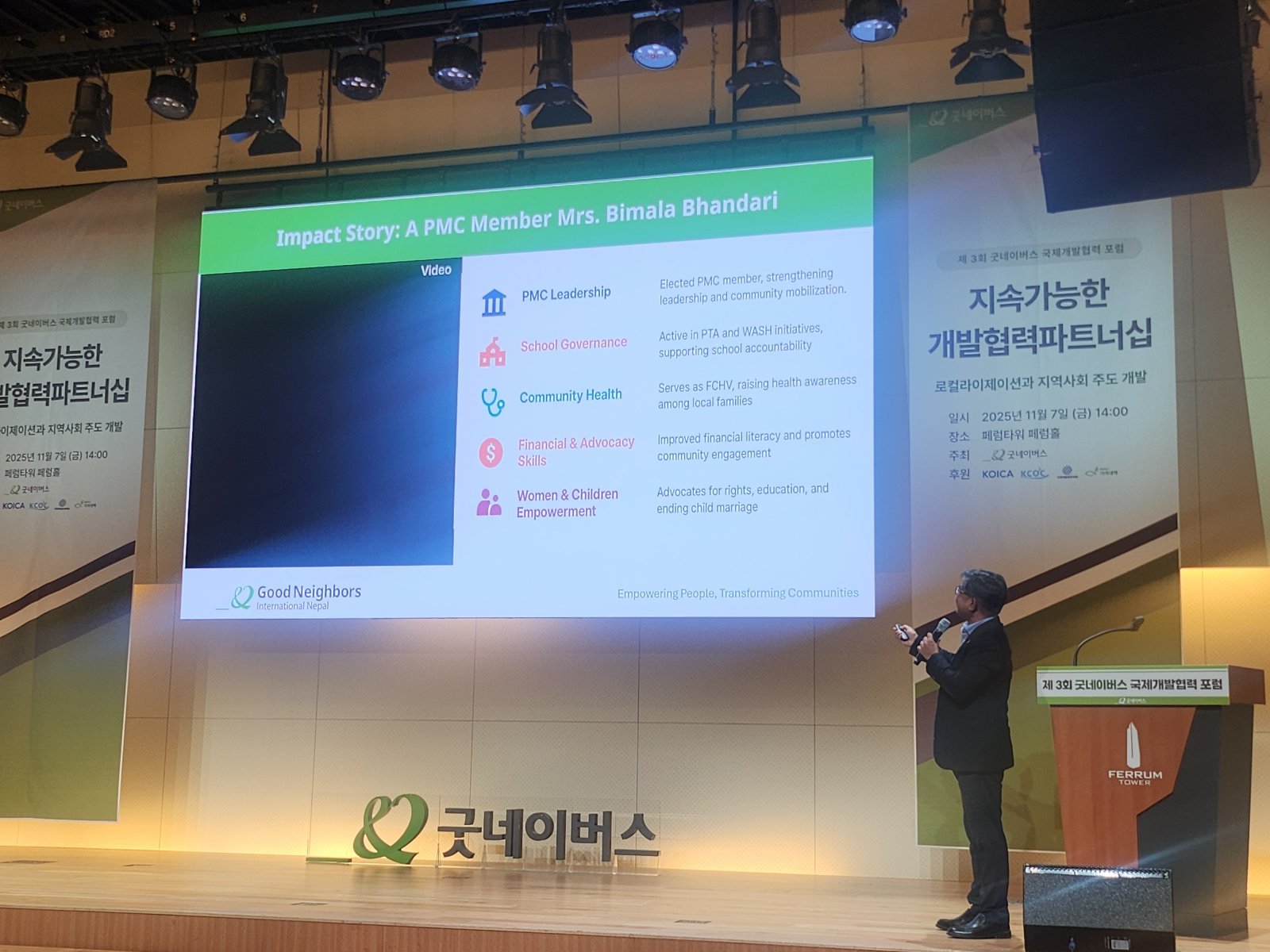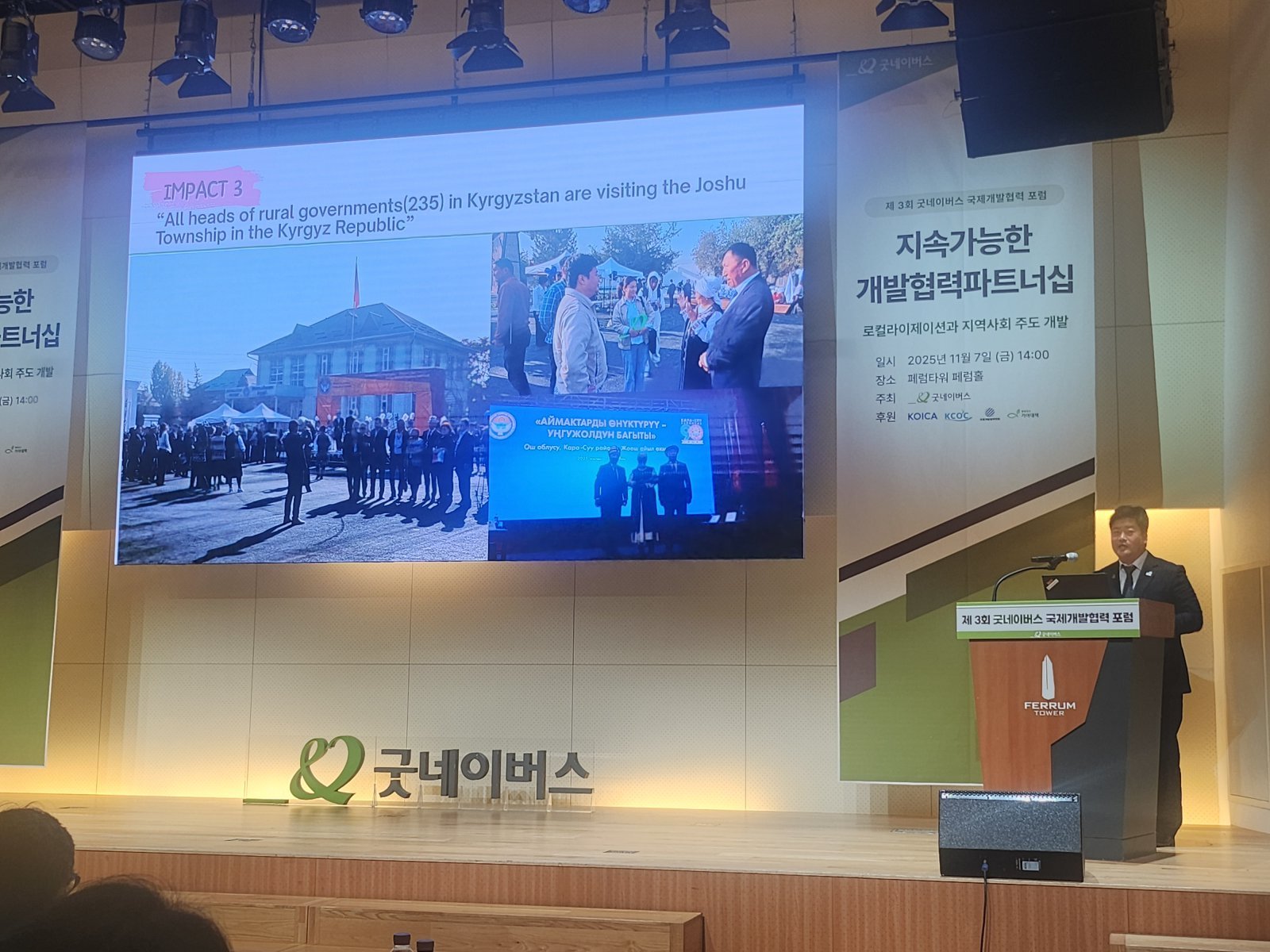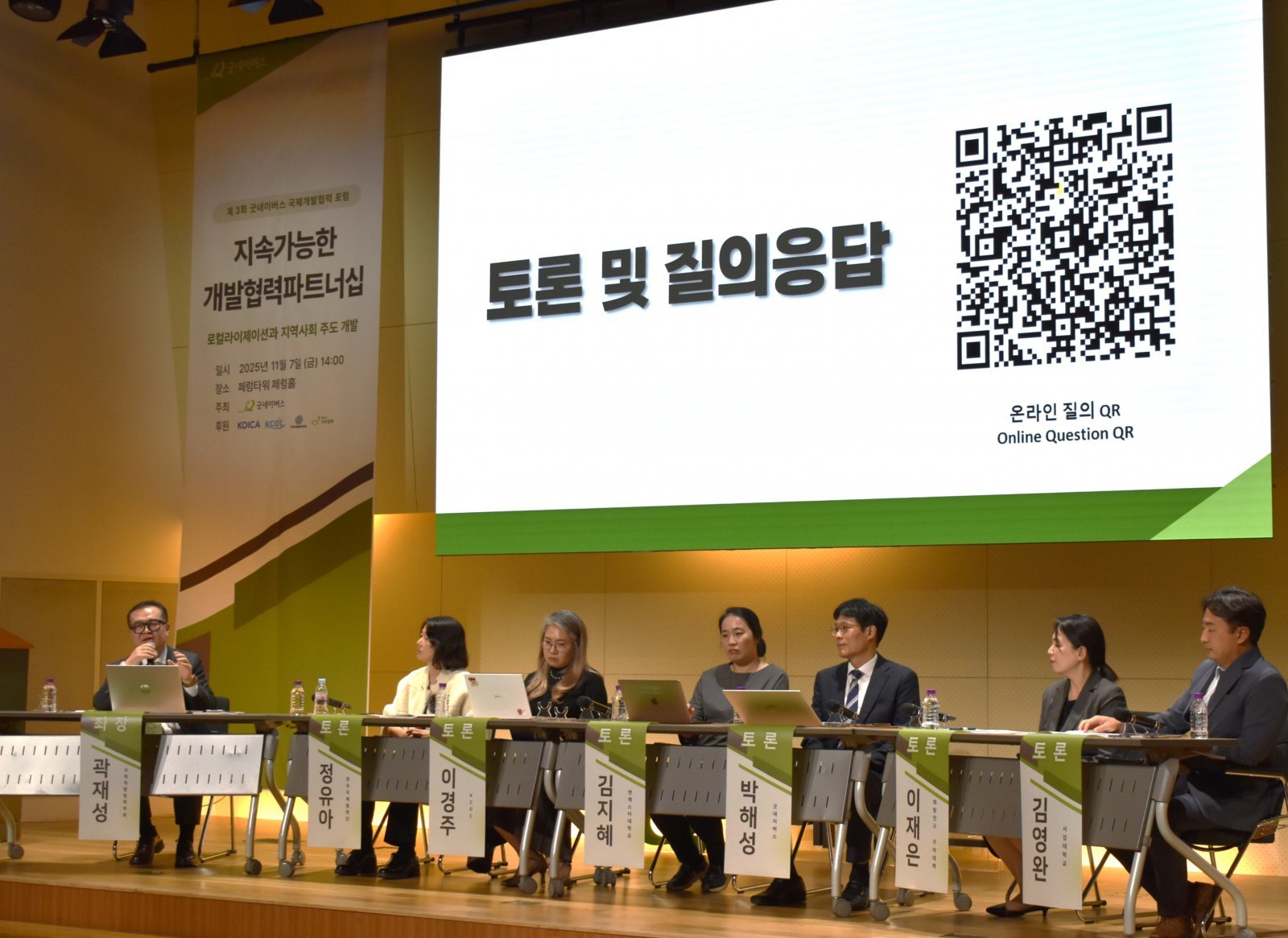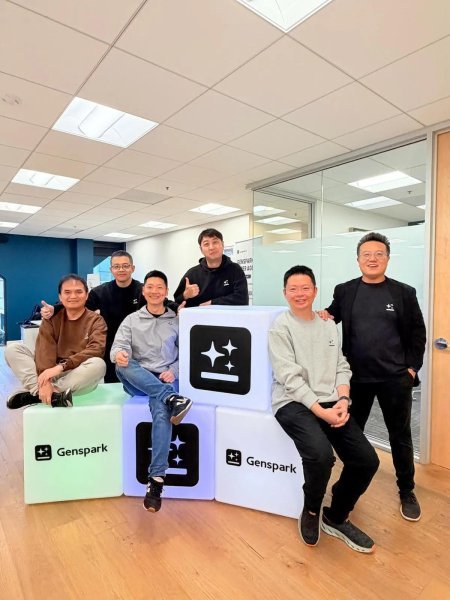
Business / Global Partnership
"Good Neighbors Proposes New International Development Paradigm"
Dong-A Ilbo |
Updated 2025.11.10
Participants at the 3rd Good Neighbors International Development Cooperation Forum pose for a photo. Provided by Good Neighbors
Aid to developing countries has continued since the establishment of the United Nations (UN) in 1945. Over time, the importance of 'Localization' and 'Local-Led Development (LLD)' in the field of international development cooperation is increasingly recognized. However, many limitations and challenges remain in systematically and structurally implementing these values and principles in actual projects.Accordingly, the discourse surrounding international development and aid is being reorganized around strengthening 'Localization' and 'Ownership.' The focus is now on how to practically implement, measure, and institutionalize these approaches.
In this context, the global child rights NGO Good Neighbors held an 'International Development Cooperation Forum' on the 7th, discussing the development direction of international development and aid and the establishment of sustainable cooperative relationships with developing countries.
● Core 'LLD' Development Led by Local Residents
At the forum, Good Neighbors announced that under the mission of 'respecting the human rights of neighbors suffering from poverty, disaster, and oppression, and encouraging them to have hope and live a self-reliant life,' they are pursuing projects with 'Local-Led Development (LLD)' as a core principle and major business direction.
In particular, plans for planning Community Development Projects (CDP) and establishing Community Development Committees (CDC) for successful LLD projects were discussed.
Kwak Jae-sung, President of the Korean Association of International Development and Cooperation, stated at the forum, "The core of LLD is the proactive participation of local partners and residents," and explained, "While large international NGOs and donor countries prefer it because it can reflect local cultural specificity and needs in aid programs, there is criticism of a 'top-down approach' as the final decision-making authority lies with external actors."
He also pointed out, "The United States has supported developing countries using the LLD approach for the past 20 years, but recent policy changes have revealed uncertainties and limitations."
Good Neighbors Chairman Lee Il-ha delivering a congratulatory address. Provided by Good Neighbors
● Korean LLD, Successful Case of 'Freshwater Fish Farm' in Guatemala
Kwak introduced the 'Guatemala Freshwater Fish Farming Project' as a successful case of Korean LLD. Initially, concrete was used in the domestic way, but Guatemala, being an earthquake-prone region, suffered significant damage.
With technical advice from local experts and resident-led participation, a new fish farm was established that minimized earthquake damage, and the farming of freshwater fish of appropriate size for local consumption was successful. He explained, "This case is a representative Korean LLD model combining local knowledge and resident leadership."
● "For Korea, Understanding Local Culture is More Important as a Latecomer Donor Country"
Kwak advised, "Korea is a latecomer donor country, unlike existing donor countries that were imperial powers," and "To overcome the low level of localization, LLD should be pursued while deeply learning local knowledge and culture."
He added, "Korea is transitioning the 'Global South,' which was once an aid recipient, into a cooperation partner," and "is establishing a new LLD concept that enables developing countries to develop independently by improving the traditional ODA (Official Development Assistance) structure." The Global South is a term that refers to non-Western, developing, or Third World countries.
Professor Kim Young-wan presenting the analysis results of Good Neighbors' development and aid projects. Provided by Good Neighbors
● Ethiopia and Mongolia CDP, Regional Changes Made by Good Neighbors
Professor Kim Young-wan from Sogang University presented cases centered on Good Neighbors' Community Development Projects (CDP). He emphasized, "Active participation of Community Development Committees (CDC) and Community Based Organizations (CBO) is essential for successful CDP."
In Good Neighbors' Ethiopia CDP project, two children from extremely poor families grew up to become a national bank employee and a professional soccer player, respectively. In addition, hundreds of beneficiaries were produced in Ethiopia and Mongolia.
According to Professor Kim's field survey conducted in the summer of 2025, over 80% of beneficiaries in Ethiopia responded that "the CDP project had a positive impact on the community and their lives," with similar results in Mongolia.
● New Aid Theory Based on CDP Achievements 'GN-CDP Model'
Professor Kim proposed the 'Integrated Approach GN-CDP Model' based on these achievements. This theory suggests that three elements—social services, economic development, and civil society capacity—are integrally enhanced through CDP, transforming society.
He also analyzed that the CDC operates most effectively when five functions—Bridging, Ownership, Representation, Responsiveness, and Sustainability—are combined through the 'GN-CDC Model.'
He added that the development conditions for CDC require a complementary relationship among Willingness, Capacity, and Financial Support.
Mainul Mainuddin, head of Good Neighbors Nepal, reports on the results of forming a PMC (Project Management Committee) for CDP projects in Nepal. Choi Jae-ho, reporter cjh1225@donga.com
● Nepal 'PMC' and Community-Led Success Stories
At the forum, successful cases of ODA projects were also presented. Mainul Mainuddin, head of Good Neighbors Nepal, stated, "We formed a PMC (Project Management Committee) to carry out CDP projects," and "increased the sustainability of CDP through continuous communication with local residents, cooperation with local governments, and fostering ownership."
Currently, 16 PMCs are formed in Nepal, with a female ratio of 52%, higher than males (48%). PMCs have achieved specific results such as allocating 30% of local government budgets to regional development and achieving 100% child health check-ups.
Additionally, Mainuddin reported that through connections with KOICA (Korea International Cooperation Agency), Good Neighbors, and the UN World Food Programme (WFP), ODA projects were carried out in Rwanda, Tanzania, Bangladesh, and Nepal, all of which achieved dramatic results.
● Kyrgyz Republic, Leading Rural Community Change
Won Il-hyung, project manager of Good Neighbors Kyrgyz Republic, announced that since 2021, they have been working with KOICA to improve community infrastructure, strengthen women's rights, and increase income in Osh and Batken provinces. Since gaining independence from the Soviet Union in 1991, Kyrgyz Republic has not achieved noticeable economic or political growth while competing with neighboring countries.
Won Il-hyung, project manager of Good Neighbors Kyrgyz Republic, presenting achievements. Choi Jae-ho, reporter cjh1225@donga.com
In the case of Sarikamush village, one of the beneficiary villages, after forming a CDC, they secured road construction funds from the local government, and the apricot and apple producers' cooperative in Batken region established a stable economic foundation through the construction of cold storage and exports to Russia.Other specific achievements include the establishment of water infrastructure, participation of CDC project participants in local politics, and selection as the best district.
Panel discussion and Q&A session at the 3rd Good Neighbors International Development Cooperation Forum: (from left) Kwak Jae-sung, President of the Korean Association of International Development and Cooperation, Jung Yoo-ah, Director of Partner Business Office at KOICA, Lee Kyung-joo, Director of Humanitarian Support Department at the Korea NGO Council for Overseas Development Cooperation, Kim Ji-hye, Professor of Social Statistics at the University of Manchester, Park Hae-sung, Team Leader of International Business Division at Good Neighbors, Lee Jae-eun, Director of Global Impact Division at Food for the Hungry, and Kim Young-wan, Professor of Political Science and International Relations at Sogang University. Provided by Good Neighbors
● "Towards Sustainable Regional Independence"... Leading Change with Good Neighbors
The paradigm of international development cooperation is now shifting beyond simple aid to 'Local-Led Development,' where regions grow independently. Good Neighbors plans to continue strengthening the CDP and CDC models to enhance community self-reliance and problem-solving capabilities, and expand cooperation systems with local partners.
Good Neighbors' vision of 'a world where everyone lives with dignity' is becoming a compass that suggests a new direction for international development cooperation.
Choi Jae-ho
AI-translated with ChatGPT. Provided as is; original Korean text prevails.
ⓒ dongA.com. All rights reserved. Reproduction, redistribution, or use for AI training prohibited.
Popular News







